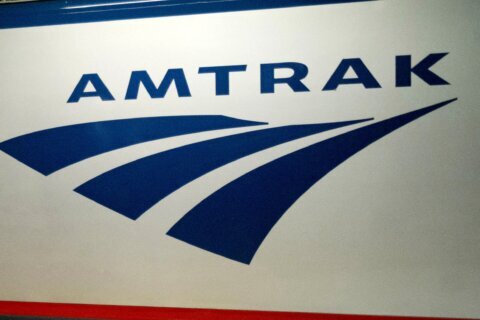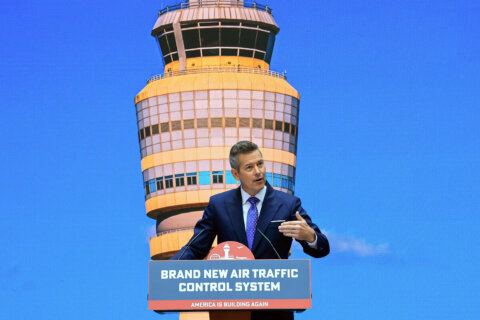WASHINGTON — Three drivers filed a class-action lawsuit this week against Virginia Express Lanes operator Transurban, telling a federal court that the company is not following the law and owes millions in damages to the public.
“The Collection Defendants, operating as agents of and on behalf of the Transurban Defendants, are participants in and profit from this illegal scheme,” according to the complaint.
Jo-Ann Brown, Mary Elisa Pizarro and Michele Osborne are the three named plaintiffs on the case. Brown owed Transurban $4.95 in unpaid tolls, but the complaint says that Transurban pursued her for $3,413.75. Another was charged $17,000 for $36 in unpaid tolls.
“The numbers really speak for themselves. They get so vastly disproportionate to the toll that is owed that they cease to be reasonable and the statute requires that they be reasonable,” says Walter D. Kelley, attorney at Hausfeld LLP, who is the lead attorney representing the plaintiffs.
“As one person told Channel 9, ‘They get you over a barrel like that. They keep pushing you. They have the money and lawyers to do that and you don’t.’ Well, this lawsuit will even the playing field,” he adds.
Faneuil Inc. and Law Enforcement Services are also named defendants in the lawsuit. Law Enforcement Service is a Wisconsin-based company that is contracted as a collections agency for unpaid debts.
Transurban outsources other enforcement functions for unpaid toll trips to Faneuil Inc., based out of Hampton, Virginia. For example, Faneuil employee Alexis Brach negotiates on behalf of Transurban. She also appeared in court for Transurban until one Fairfax County District Court judge found since Brach was not an attorney, nor a Transurban employee, she could not act in that capacity.
“Essentially, Transurban is seeking to turn this into a cash cow. It’s not even clear that these people really missed the tolls because Transurban admits its toll gantries don’t always pick up your E-ZPass,” Kelley says.
The Virginia Department of Transportation acknowledges that certain types of cars and windshields do mask the signal and could cause a correctly mounted E-ZPass not to be read.
“We understand some Jeeps do present issues because of the upright windshield positions in relation to the angle in which the tag readers are mounted. If patrons complain of issues in the lanes, we check to ensure the transponder is mounted correctly, and if so, offer a bumper transponder as replacement for the interior transponder,” wrote VDOT spokeswoman Shannon Marshall in Sept. 2014.
Other known issues include certain types of tinting in the windshield that scatter the signal from toll gantries and could prevent a proper connection.
“It may be that what these problems are raising are issues that the General Assembly will have to visit the next time it reconvenes,” Kelley says.
He says lawmakers should focus on the administrative fees and civil penalties. He believes that Transurban does not need to spend $100 in administrative costs per unpaid toll trip. For example, Toni Cooley had 11 unpaid toll trips and got hit with $1,100 in administrative fees.
He also believes the Virginia law requires Transurban to first take a driver to court before it can charge escalating civil penalties of $1,000 per unpaid trip on subsequent trips. Right now, if a driver has five unpaid toll trips, each carries an escalating penalty, including $1,000 for the fourth and each subsequent violation.
“I think a class action was inevitable. Judgements are so large sometimes that it shocks people. I’m not surprised lawyers are testing the legality of the system,” says Del. Scott Surovell.
Transurban responded in a statement to WTOP, although it did not address the lawsuit specifically because it hadn’t finished reading the complaint.
“We do not want to see a single customer in court. We are pleased that the vast majority of our customers pay at the time of travel without issue, and less than 0.1 percent of 495 Express Lanes trips end up in court,” writes Transurban spokesman Mike McGurk.
“We have implemented First Time Forgiveness to provide E-ZPass customers on the Express Lanes opportunities to avoid fees and penalties all together. As part of this program, we have also capped the violation trips we send to court at four trips, or a maximum of $2,200 (plus applicable court fees). This commitment means we do not pursue the potential tens of thousands of dollars in civil penalties prescribed by Virginia law. Our toll enforcement practices meet the requirements of the Virginia Code and the Virginia HOT Lanes Statute and Transurban does not profit from our enforcement program or civil penalties,” he writes.
The case has now been assigned to a U.S. District Court judge in Alexandria, Virginia. The entire case could be wrapped up within one year, but Kelley hopes the case will open a dialogue with Transurban on how to make the system better for the public.







